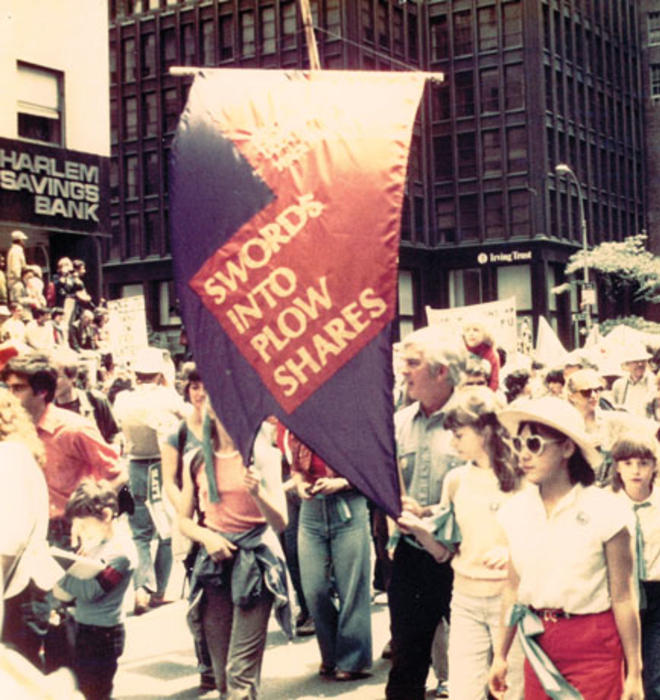
April 29, 1927 – July 3, 2012
Franklin Dorman was an unusual Princetonian, and not just because he never earned more than $10,000 a year and was darn proud of it. A gentle, radical minister who caught fire in the 1960s and then campaigned tirelessly for most of that decade’s liberal causes, Dorman was arrested 19 times for acts of nonviolent civil disobedience and jailed twice.
In 1972, he was one of the first people arrested during antiwar protests at Westover Air Force Base near Springfield, Mass. When he refused to pay the $10 fine, he was thrown in jail for 10 days, which, he noted with glee, was the only time he made it into The New York Times.
“That was where my mother saw it,” he told an interviewer years later. “She was fit to be tied. I come from a long line of conservative Republicans. I don’t know where I got going.”
What got him going were Martin Luther King Jr. and the civil-rights movement. Inspired by his professors at the Drew Theological School who had begun demonstrating locally and in the South, Dorman marched into Selma, Ala., with King. “Selma was an eye-opener,” said Dorman, who would spend the next three decades campaigning for peace and justice while working as a minister, a dorm supervisor at the University of Massachusetts, and finally at the front desk of the Harvard Divinity School. When he took his two oldest children to an antiwar rally in Washington, he recalled wryly, “we succeeded in getting ourselves tear-gassed.” On trips to Nicaragua, he picked cotton and got caught in an artillery battle between the Contras and Sandinistas.
While he always was gracious toward those with whom he disagreed, his sense of justice never wavered. “He felt so clearly, internally, that what he was doing was witnessing what he felt to be the truth as a person of faith, and therefore he did not feel any conflict,” says his wife of 33 years, Jennifer Jones.
Dorman was introspective about what pushed him to challenge the establishment. “He attributed it to his growing up in a wealthy, white family and being a male,” Jones says. He even preached a sermon on the subject, noting the irony in his attacking the very establishment that had given him his confidence in the first place.
Dorman had mixed feelings about Princeton, which he felt to be a very conservative place. He would come to Reunions — on a motorcycle — but for years refused to buy a class jacket. Despite this ambivalence, Dorman used Princeton’s motto as the yardstick to measure his accomplishments, writing in his 50th-reunion book, “I consider that I have represented ‘Princeton in the nation’s service’ in ways quite different from but no less valuable than graduates in the State Department, the CIA, the military, and various administrations.”
Dorman died in July, after a fall. To many of his classmates, he was a figure of curiosity and wonder. “He was radical in ways others of us wished we had the nerve to be,” says Charlton Price ’48. “It’s one of the reasons we admire him so much.”
Merrell Noden ’78 is a frequent PAW contributor.






1 Response
Jim Matlack ’60
10 Years AgoLives lived and lost
I read with both pleasure and regret the memorial article on Franklin Dorman ’48. In the mid-1960s I was master-director of the Southwest Residential College at UMass Amherst. Frank was a friend and a colleague — steady, wise, and deeply committed. He headed the Pioneer Valley’s first men’s center, which was part of the residential college.
Frank and I both engaged in public witness against the Vietnam War through those years. I helped to coordinate the mass civil-disobedience campaign at Westover Air Force Base in nearby Chicopee, where some 1,600 were arrested over 10 weeks protesting the B-52 bombers that were based there when not bombing in Southeast Asia. Frank and I both served 10 days in the ancient prison in Springfield for our Westover actions. Frank led the singing in the bus on the way to the jail.